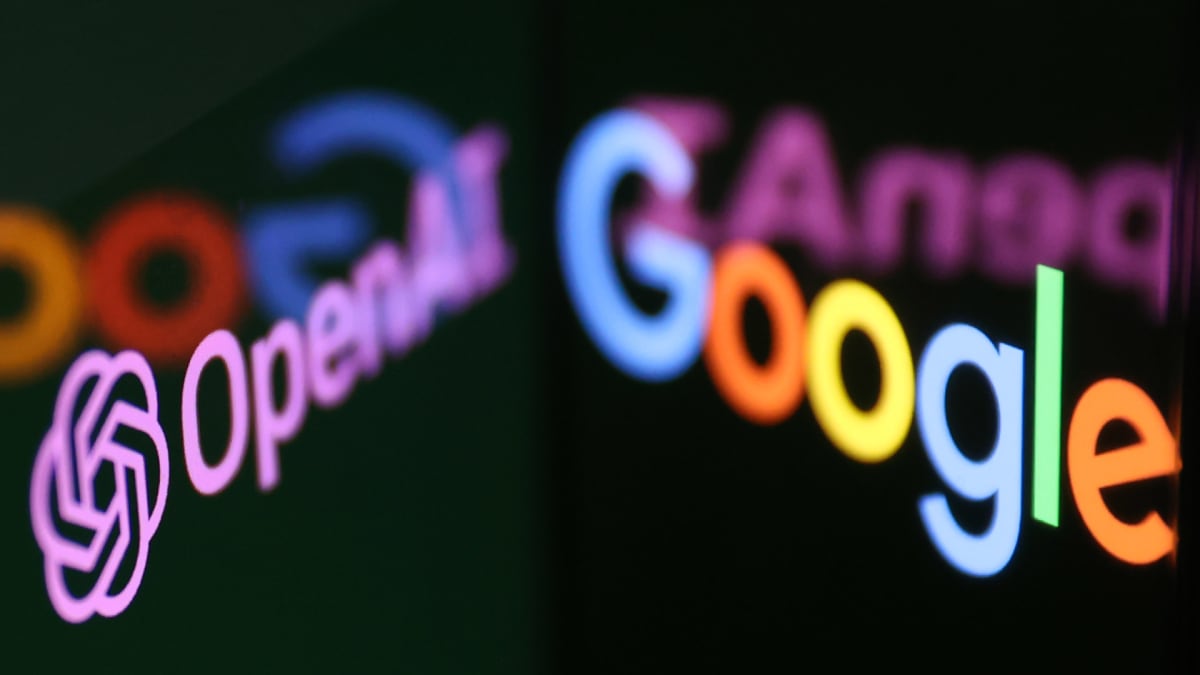
Is Alphabet's Google still sitting in the driver’s seat in the AI arms race?
This is the question that has been plaguing experts and investors ever since ChatGPT, the chatbot developed by OpenAI, a "capped-profit” company whose biggest shareholder is Microsoft, took the world by storm last November.
This next-generation chatbot responds to the most complex requests with human-like replies. It has changed the way internet search -- Google's core business -- is perceived. The chatbot showed that artificial intelligence has reached a point where technology can perform certain tasks much better than humans can.
Microsoft (MSFT) immediately incorporated ChatGPT features into Bing, its search engine. The Redmond, Wash., group has also deployed these features in almost all of its products and in its cloud activity.
Open Source Is the Real Competition
Faced with this push, Google (GOOGL) recently launched Bard, a rival to ChatGPT. But despite this move, doubts persist about Google's leadership in a sector where the internet giant was one of the pioneers. These doubts are also expressed within the group based in Mountain View, Calif.
Luke Sernau, an engineer of the group, shared some of these doubts in a message, which has been circulating internally since April, and which was published by semianalysis.com.
Sernau laments that Google is primarily focused on its rivalry with OpenAI. This rivalry is negative, it seems, because it blinds the internet giant, which allows a more dangerous adversary to advance under the radar. This silent adversary is the open source community. This community includes many researchers who do not work for tech groups. They make faster discoveries and advances in AI than Google and OpenAI, says Sernau.
"We’ve done a lot of looking over our shoulders at OpenAI," Sernau wrote. "Who will cross the next milestone? What will the next move be? But the uncomfortable truth is, we aren’t positioned to win this arms race and neither is OpenAI. While we’ve been squabbling, a third faction has been quietly eating our lunch.
"I’m talking, of course, about open source. Plainly put, they are lapping us. Things we consider 'major open problems' are solved and in people’s hands today," he said.
Open source communities are running foundation models on a Pixel 6 at a record speed, he explained. They can finetune a personalized AI on your laptop in an evening and entire websites full of art models with no restrictions whatsoever; and text is not far behind.
He concludes that Google's biggest rival is not OpenAI but the open source communities because they are developing AI models and tools that are cheaper, faster, easily adaptable and adjustable to each client, compared to the giant models of tech groups and more specifically to those of Google.
A 'Losing Proposition'
"While our models still hold a slight edge in terms of quality, the gap is closing astonishingly quickly. Open-source models are faster, more customizable, more private, and pound-for-pound more capable," Sernau argued. "We have no secret sauce. Our best hope is to learn from and collaborate with what others are doing outside Google."
He then warns his company against the errors of today, which, according to him, will have great commercial consequences in the future.
"People will not pay for a restricted model when free, unrestricted alternatives are comparable in quality. We should consider where our value add really is," Sernau recommended. "Giant models are slowing us down. In the long run, the best models are the ones which can be iterated upon quickly."
"We should make small variants more than an afterthought."
"This is not an official company strategy document," Jane Park, a spokesperson said in an emailed statement. "This type of internal document is typical at Google — we have a culture of information sharing, and robust debate and discussion among our engineering and tech community."
She added that: "We’re energized by the activity in this space and the new opportunities it creates."
What caused Sernau's concern was the leak to the public of a small AI model developed by Meta Platforms, LLaMA, in March, and what followed after that.
"A tremendous outpouring of innovation followed, with just days between major developments," the Google's employee wrote. "Most importantly, they have solved the scaling problem to the extent that anyone can tinker. Many of the new ideas are from ordinary people. The barrier to entry for training and experimentation has dropped from the total output of a major research organization to one person, an evening, and a beefy laptop."
He ends by reiterating that remaining focused on OpenAI risks causing the demise of Google, because the real danger is the open source communities. OpenAI and Google are similar because they both have closed policy.
"Directly competing with open source is a losing proposition," Sernau argued. "This recent progress [open source community's prowess] has direct, immediate implications for our business strategy. Who would pay for a Google product with usage restrictions if there is a free, high quality alternative without them?"
He said that Google should not expect to be able to catch up.
"The modern internet runs on open source for a reason. Open source has some significant advantages that we cannot replicate."







